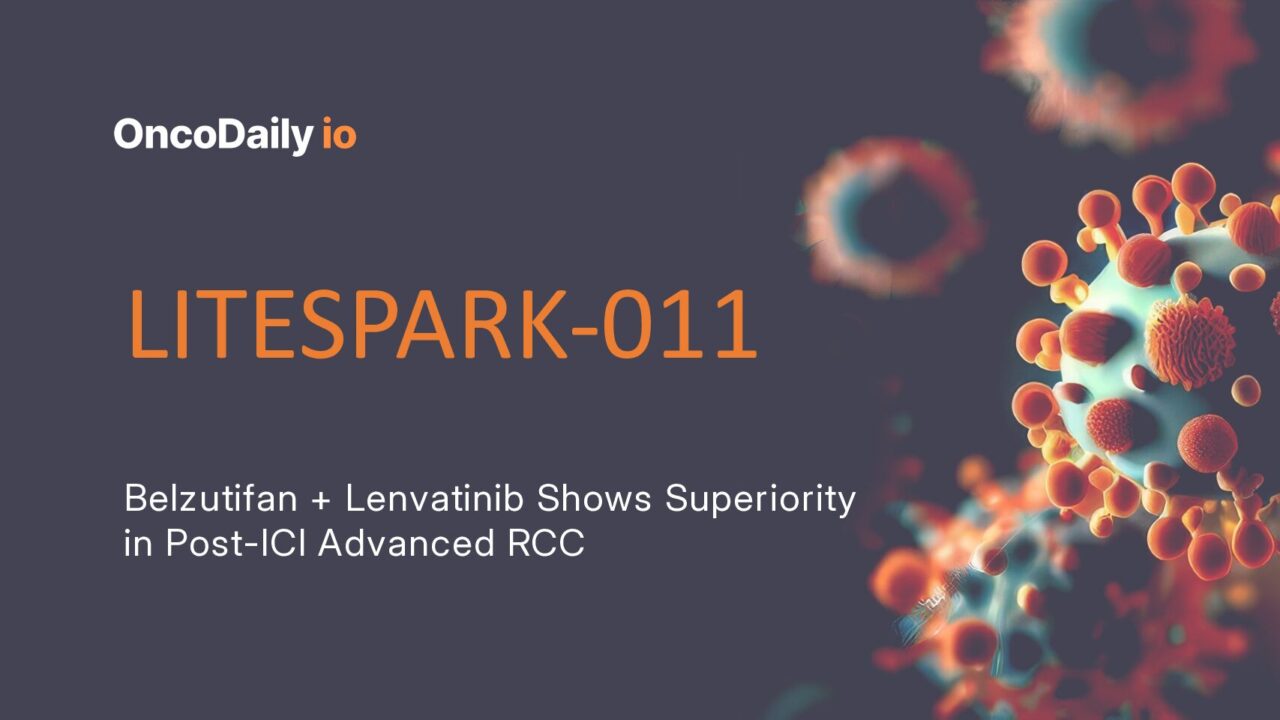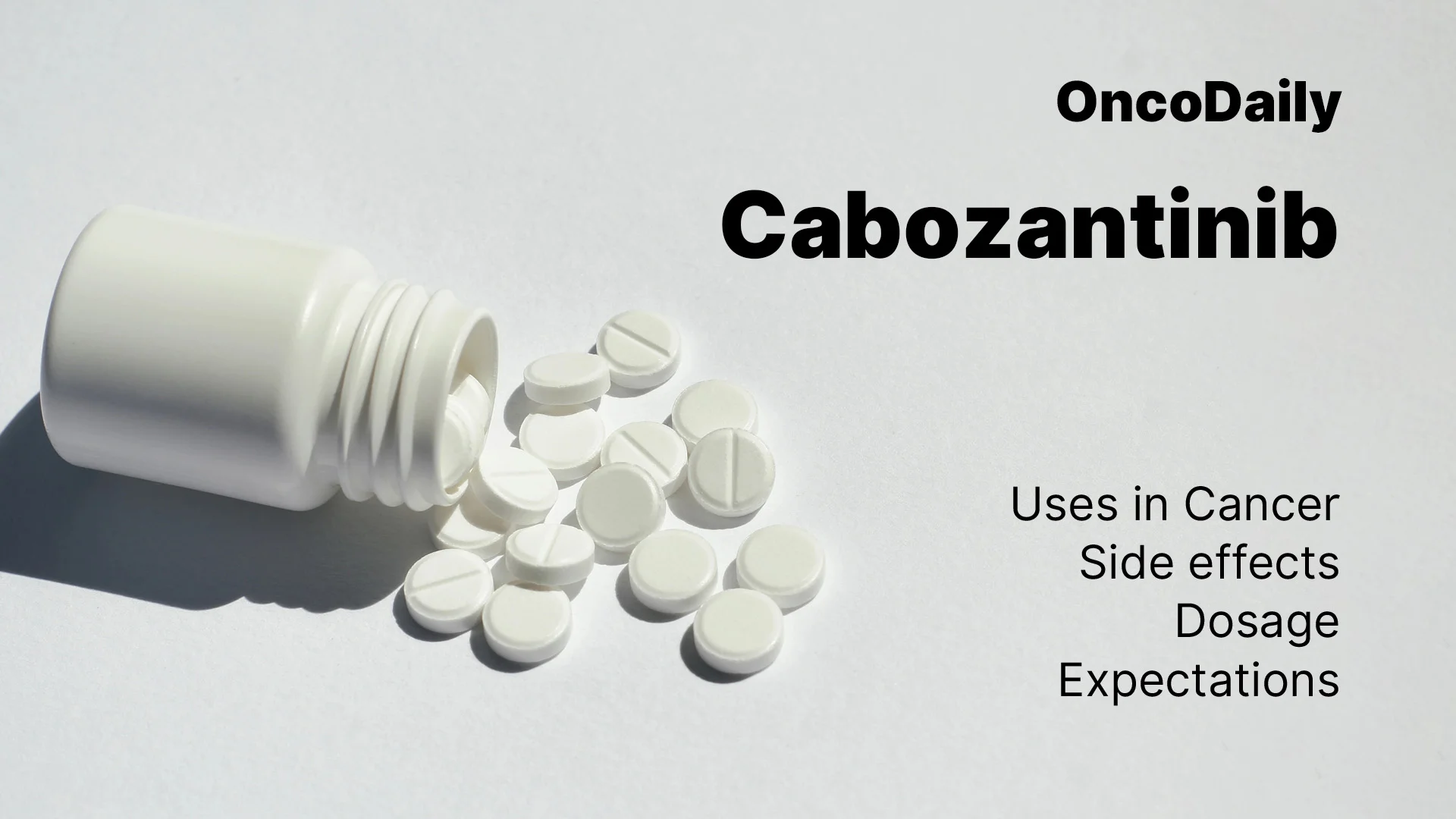Immune checkpoint inhibitors (ICIs) have transformed the management of advanced renal cell carcinoma (RCC), establishing PD-1/PD-L1–based regimens as the foundation of first-line therapy. However, a large proportion of patients ultimately experience disease progression, and therapeutic resistance after ICI exposure remains a major clinical challenge.
Hypoxia-inducible factor-2 alpha (HIF-2α) has emerged as a critical oncogenic driver in clear cell RCC, regulating angiogenesis, metabolism, and immune evasion. Belzutifan (WELIREG®), the first-in-class oral HIF-2α inhibitor, demonstrated antitumor activity in previously treated RCC and von Hippel-Lindau–associated tumors.
The Phase 3 LITESPARK-011 trial (NCT04586231) represents the first large-scale study to test a HIF-2α inhibitor in combination with a multi-targeted VEGF tyrosine kinase inhibitor (TKI)—belzutifan plus lenvatinib (LENVIMA®)—as post-immunotherapy treatment for advanced RCC.
You Can Also Read About Cabozantinib: Uses in Cancer, Side effects, Dosage, Expectation, and more
Study Design and Methods
LITESPARK-011 is a randomized, open-label, Phase 3 trial comparing belzutifan + lenvatinib versus cabozantinib in patients with advanced clear cell RCC that progressed after anti-PD-1 or PD-L1 therapy.
- Primary endpoints: Progression-free survival (PFS) and overall survival (OS).
- Key secondary endpoints: Objective response rate (ORR), duration of response (DOR), and safety.
A total of 708 patients were randomized to: - Belzutifan 120 mg once daily + lenvatinib 20 mg once daily, or
- Cabozantinib 60 mg once daily (control arm).
Tumor response was assessed per RECIST v1.1 by blinded independent central review (BICR).
Results
At the pre-specified interim analysis, the combination of belzutifan + lenvatinib met one of its primary endpoints, demonstrating a statistically significant and clinically meaningful improvement in PFS compared with cabozantinib.
- Progression-Free Survival (Primary Endpoint):
Belzutifan + lenvatinib significantly reduced the risk of disease progression or death, marking the first regimen to show superiority over cabozantinib in the post-ICI setting. - Objective Response Rate (Secondary Endpoint):
The combination achieved a statistically significant higher ORR compared with cabozantinib, supporting its potent antitumor activity. - Overall Survival (Co-Primary Endpoint):
A favorable trend toward improved OS was observed but did not reach statistical significance at interim; further follow-up is ongoing.
Safety: The safety profile was consistent with prior experience for both belzutifan and lenvatinib. No new or unexpected safety signals were observed. Rates and types of adverse events reflected the known toxicities of HIF-2α inhibition (anemia, hypoxia) and VEGF-TKI therapy (hypertension, fatigue, diarrhea).
Interpretation
LITESPARK-011 is the first positive Phase 3 trial to demonstrate that dual HIF-2α and VEGF pathway inhibitioncan overcome post-immunotherapy resistance in advanced RCC. The combination’s superiority to cabozantinib underscores the biological synergy between hypoxia modulation and anti-angiogenic blockade, with potential downstream effects on the tumor immune microenvironment, including:
- normalization of tumor vasculature,
- reduction of immunosuppressive hypoxia, and
- enhanced cytotoxic T-cell infiltration.
These results establish belzutifan + lenvatinib as a promising new standard of care for patients progressing after PD-1/L1 therapy, addressing a major unmet need in the immuno-oncology continuum.
Key Takeaway Messages
- LITESPARK-011 is the first Phase 3 study to show PFS superiority over cabozantinib after ICI failure.
- Combination of belzutifan + lenvatinib achieved statistically significant improvement in PFS and ORR versus cabozantinib.
- A favorable OS trend supports durable benefit; final OS data are awaited.
- The regimen exhibited a manageable safety profile consistent with prior studies, with no new signals.
- These findings validate HIF-2α inhibition as a novel post-immunotherapy strategy in advanced RCC and reinforce dual-pathway targeting as a next-generation therapeutic approach.
You Can Read Full Article Here



